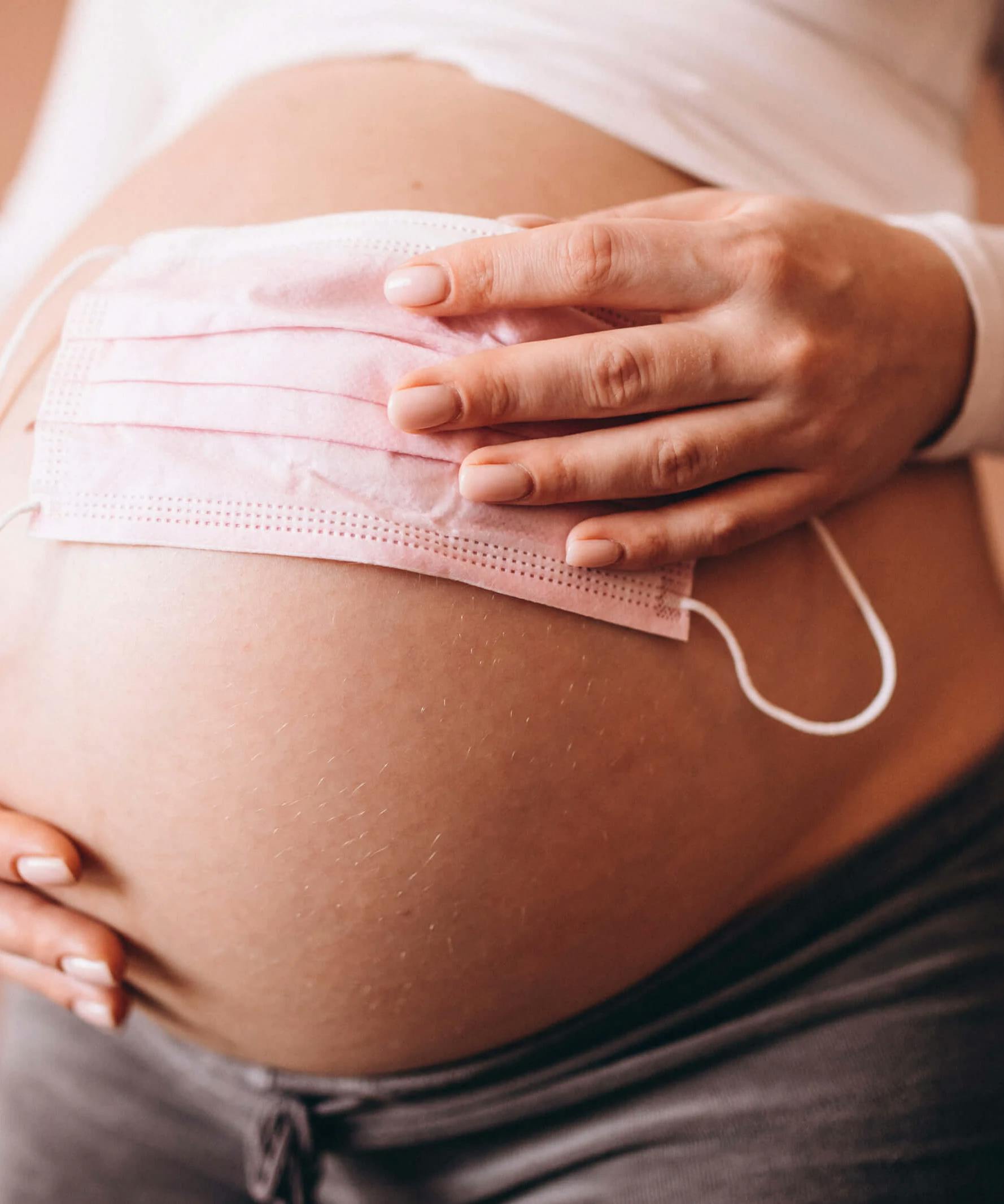Is It Safe For Pregnant Women To Get The Covid Vaccine?
Despite the mainstream media’s attempts to tamp down possible subversive discourse, many Americans have very real and genuine concerns about the forthcoming COVID vaccine, slated to be released to first participants before the end of this year.

These concerns, according to Yale Medicine, stem predominantly from the speed with which the vaccine has been produced. Development of vaccines normally takes 10 years — mumps, the vaccine which up until now took the shortest time to produce, took four years. Others question the lack of accountability for vaccine manufacturers.
While it’s difficult to feel the pulse for what we don’t know, we can put a finger on what we do know — that there’s a very specific group of people who shouldn't receive the vaccine.
What We Know about the Vaccine
Pharmaceutical giant Pfizer and biotech company Moderna are both releasing vaccines (with two doses) against SARS-CoV-2, which we now recognize as COVID-19.
The Pfizer/BioNTech vaccine has already been approved and distributed in the UK, first to a 91-year-old woman and an 81-year-old man at a Coventry hospital.
In September, only 51% of Americans said they would get vaccinated.
Though the U.S. appears only too eager to release the vaccine as soon as possible, several things remain unclear — such as if the vaccine will be required in passport form in order to travel and if certain employers will make it mandatory, altogether expanding our discussion on its use, personal liberties, and national confidence in its efficacy.
It’s just not that simple though. And according to Pew Research, in May, 72% of Americans said they would undergo vaccination should one become available. However, as concerns over the vaccine and disputes over its efficacy and side effects linger, that number fell to 51% in September.
If You’re Pregnant, You Shouldn’t Get Vaccinated
While companies in charge of production (and the media, for that matter) are pushing for adults to receive the vaccine as soon as it’s rolled out, pregnant and breastfeeding women shouldn’t receive it, as pregnant women have not been included in the trials. Breastfeeding women were also excluded.
Pregnant and breastfeeding women were excluded from the trials.
Dr. Aneesha Hossain sums it up, alongside her own personal concerns as both a pregnant woman and a medical professional: “I just don’t know any of these answers and nor does anybody else. After you get the vaccine really, what happens? Do you transmit immunity to your baby? Is that safe? Are you safe? Do you have any long-term side effects? Does the baby have to be revaccinated?”
All of these are excellent questions, which have yet to be answered.
Why Shouldn’t Pregnant Women Get It?
While there’s warranted excitement around a possible solution to the pandemic, many medical professionals have advised their pregnant patients against getting vaccinated, and for good reason.
Pregnant women are only included in vaccination trials once its safety has been fully established.
The vaccine, while monumental in its achievement, is still in its infancy, and like any new technology, only time will tell whether or not its safety can be assured for pregnant women and their babies. In normal circumstances, pregnant women are usually only included in vaccination trials once its safety has been fully established.
It’s still uncertain how the vaccine can impact fertility, pregnancy, and infants.
The British government published safety instructions for Pfizer’s vaccine, and the pamphlet includes a section on fertility. The guidelines report that there’s “no or limited amount of data” on pregnant women using the vaccine and that “animal reproductive toxicity studies have not been completed.” Additionally, “women of childbearing age should be advised to avoid pregnancy for at least 2 months after their second dose.”
The lack of information about the vaccine also involves breastfeeding, as it’s “unknown” if the vaccine “is excreted in human milk.” Therefore, “a risk to the newborns/infants cannot be excluded,” and the vaccine “should not be used during breastfeeding.” In short, the vaccine has an unknown impact on fertility, pregnant women, and their babies.
It’s “unknown” if the vaccine “is excreted in human milk.”
For their part, Pfizer released this statement to Bustle: “We are working on a potential pathway to build a maternal indication into our program. Pfizer is following guidance provided by the Food and Drug Administration (FDA) for development and licensure of vaccines to help prevent COVID-19, including the important consideration of use in pregnant women and women of childbearing potential.”
Though the Pfizer vaccine has been tested in kids 12 and older, it’s not approved for use in children.
Closing Thoughts
Pregnancy under normal circumstances is already an anxiety-inducing condition, not to mention during a global pandemic.
Pregnant women considering the vaccine have every right to have reservations, as do we all. We are, after all, in an unprecedented time, and only time can really tell how our bodies and our communities will react to this development.